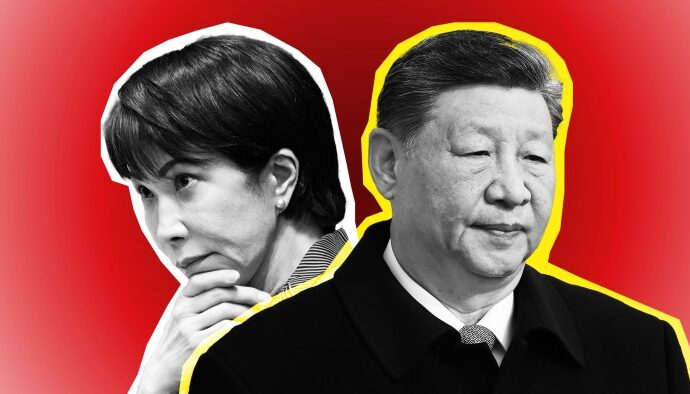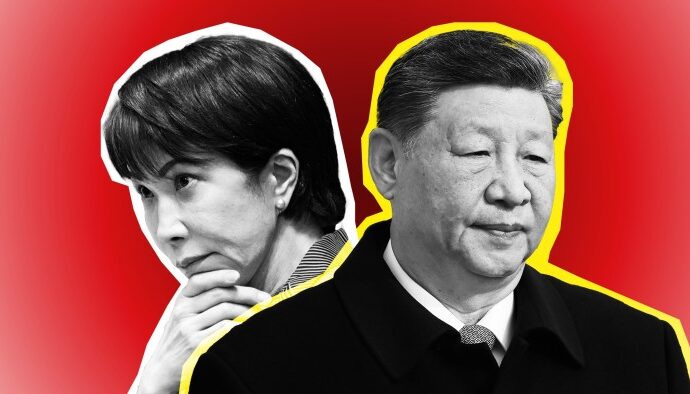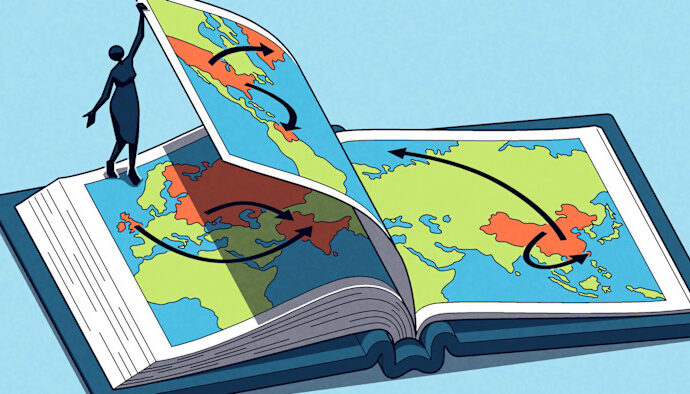Good morning. Today, I report on how India’s participation in Russian war games has soured this afternoon’s launch of an EU outreach effort to New Delhi, and Laura has disturbing news on rising discrimination against Europe’s intersex community.
Friends like these
The timing was exquisite.
This weekend, as the EU’s trade negotiator was meeting his counterpart in New Delhi and the EU’s chief diplomat was putting the finishing touches on a new strategy for closer ties with India, a deployment of Indian soldiers was taking part in Russia’s Zapad war games simulating conflict with a fictional EU member state.
Context: India has long-standing defence ties to Russia. Zapad takes place every four years. The 2021 version involved preparations for the full-scale invasion of Ukraine. Meanwhile, India and the EU are renegotiating their trade relationship in response to US President Donald Trump’s tariffs.
India said it sent 65 troops to the Russian exercises, with its ministry of defence heralding the “valuable opportunity to hone joint operational capabilities, integrate emerging technologies, and operate in a multinational combat environment”.
New Delhi’s relations with Moscow, which include buying vastly more of the Kremlin’s crude oil since the invasion of Ukraine, have long been an irritant for the EU.
Mostly, Brussels tries to turn a blind eye. This week, the issue was too stark to ignore — especially coming two weeks after Prime Minister Narendra Modi held warm meetings with Russian President Vladimir Putin in China.
“It’s awful timing,” said one EU official. “And embarrassing.”
It is deeply awkward for Brussels, which will announce a long-planned “New Strategic EU-India Agenda” today. Fronted by chief diplomat Kaja Kallas and trade commissioner Maroš Šefčovič, it will pitch that the EU is a better partner than others such as Russia, with alignment on values such as democracy and multilateralism, and huge scope for trade expansion.
“We were more than surprised. The Indian participation in Zapad, it’s concerning,” said one senior EU diplomat. “It’s an issue for us.”
The impact on the trade talks “is the big question”, the diplomat added. “Some countries will have more questions.”
The European Commission’s “concerns have been directly communicated to the Indian authorities,” said Anitta Hipper, spokesperson for foreign affairs and security policy.
“India’s participation in the Zapad military exercise, albeit at a much lower level than originally planned, sends the wrong signal. All the more so considering Russia’s war of aggression against Ukraine . . . poses an existential threat to European security,” Hipper told the Financial Times.
“The commission is convinced that engagement [with India] is the right path forward,” she added. “However, this does not mean we see eye to eye on every issue and we do not ignore the challenges.”
Chart du jour: Tax the rich
Forbes’ list of global billionaires has grown from 140 names in 1987 to over 3,000, worth a collective $16tn. Why is it so difficult to tax them?
‘Fundamental violations’
With anti-LGBT+ sentiment rising in many European counties, the EU’s rights agency has warned about high rates of discrimination against intersex people, writes Laura Dubois.
Context: The defence of human rights is a foundational principle of the EU, but activists have warned that LGBT+ rights are increasingly in danger. The European Court of Human Rights has warned about transphobia, while Italy has rolled back the rights of gay families, and countries such as Hungary have banned schools from teaching about LGBT+ related topics.
In a report published today, the EU’s Fundamental Rights Agency (FRA) highlights how intersex people experience particularly high levels of violence and discrimination.
Intersex persons are born with sex characteristics, such as sexual organs or hormonal structures, that do not fit the societal definition of male and female. “Sex is a spectrum and . . . people with variations in sex characteristics other than male or female exist,” writes FRA. Many of them also identify with other LGBT+ identities at the same time.
The report finds that half of intersex people are forced to undergo surgery or other treatments to modify their sex characteristics without their full consent, amounting to “serious fundamental rights violations”. Around 40 per cent are forced to undergo so-called “conversion therapy” to change their sexual orientation or gender identity, writes FRA.
The agency urged countries to adopt laws to prevent discrimination and stop “non-vital medical interventions” without people’s consent.
“Intersex people in the EU experience alarming levels of exclusion, discrimination and violence. Their struggle requires an urgent response,” said Sirpa Rautio, head of FRA.
“They must be provided with targeted support that addresses their specific needs to ensure they can enjoy their fundamental rights and live in dignity,” Rautio added.
What to watch today
European parliament president Roberta Metsola visits Kyiv, meets Ukraine President Volodymyr Zelenskyy and addresses Ukraine’s parliament.
European Commission to adopt sanctions against Israel, including a proposal to suspend trade under the EU association agreement.
Nato secretary-general Mark Rutte hosts Albanian Prime Minister Edi Rama.
Now read these
Are you enjoying Europe Express? Sign up here to have it delivered straight to your inbox every workday at 7am CET and on Saturdays at noon CET. Do tell us what you think, we love to hear from you: europe.express@ft.com. Keep up with the latest European stories @FT Europe



